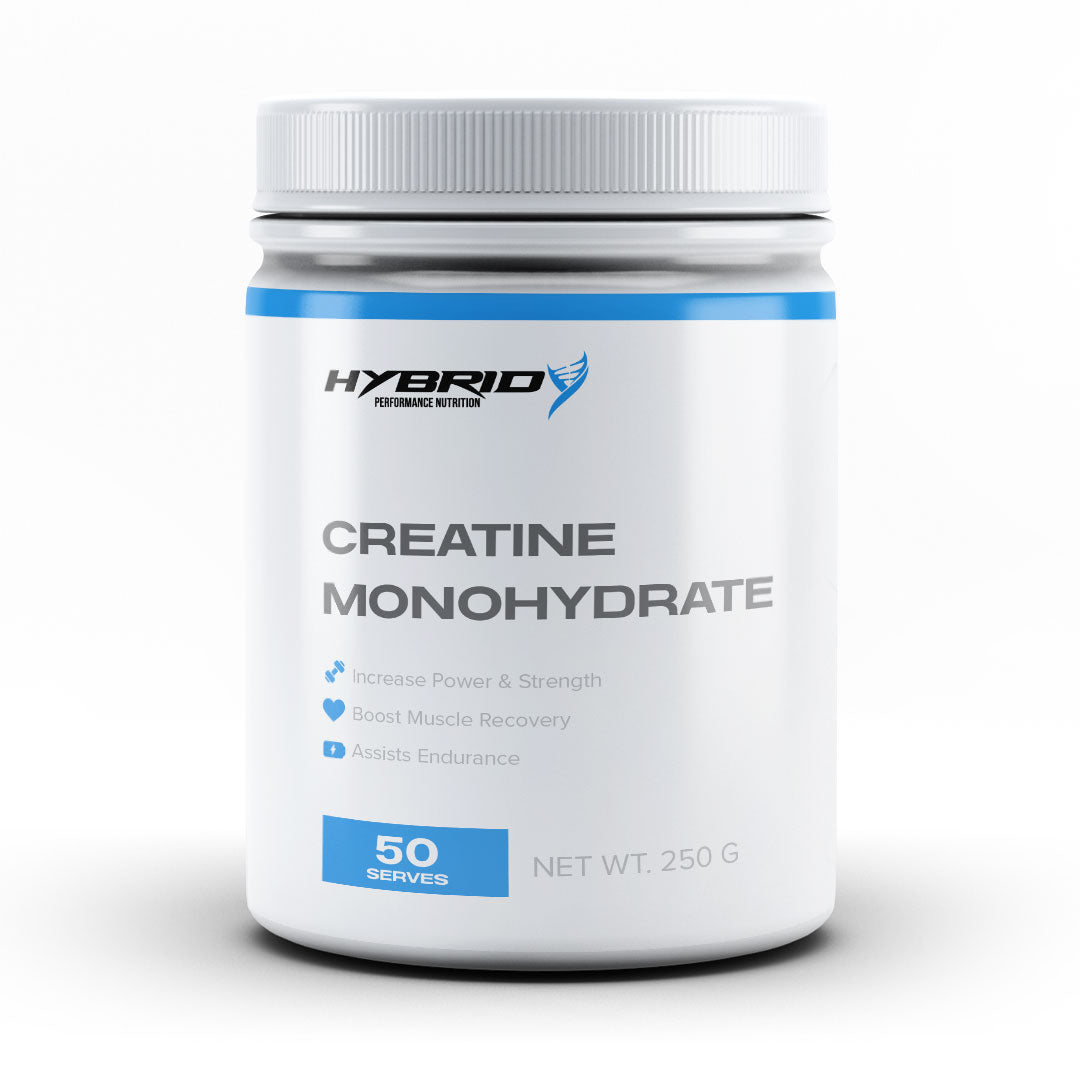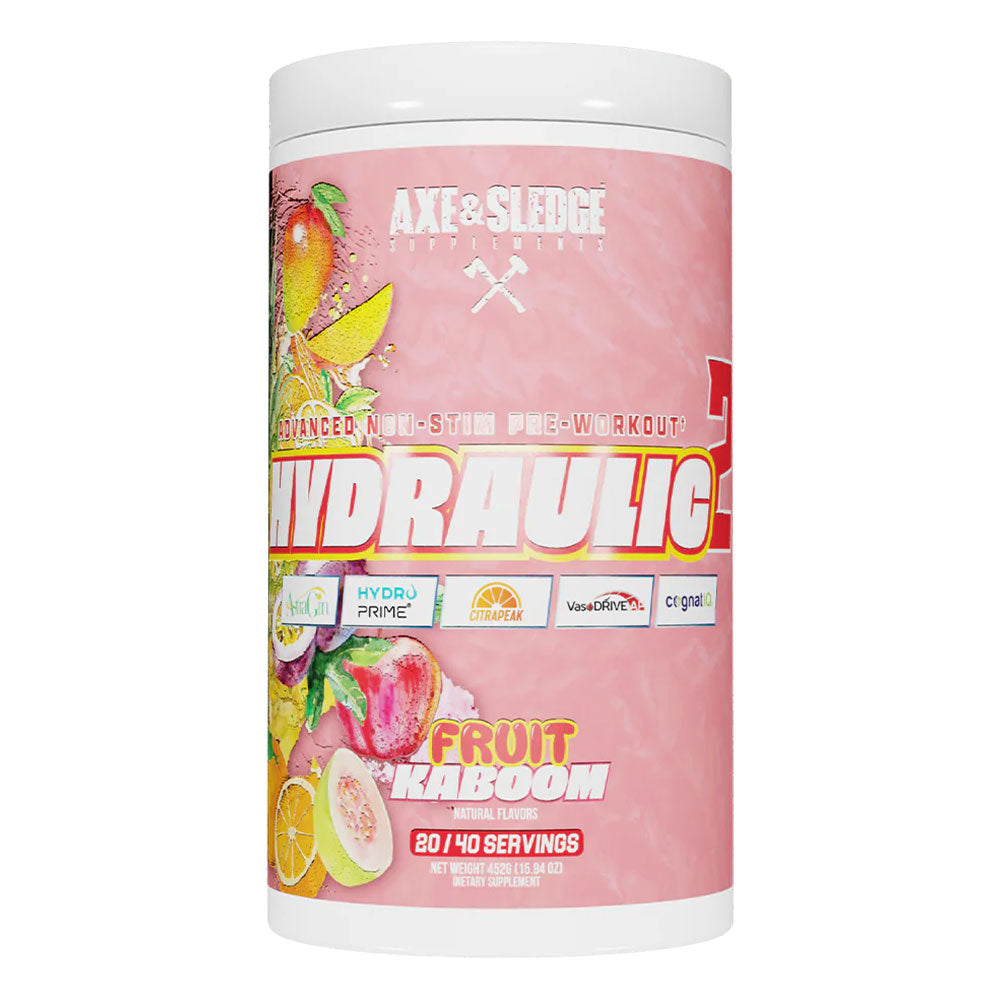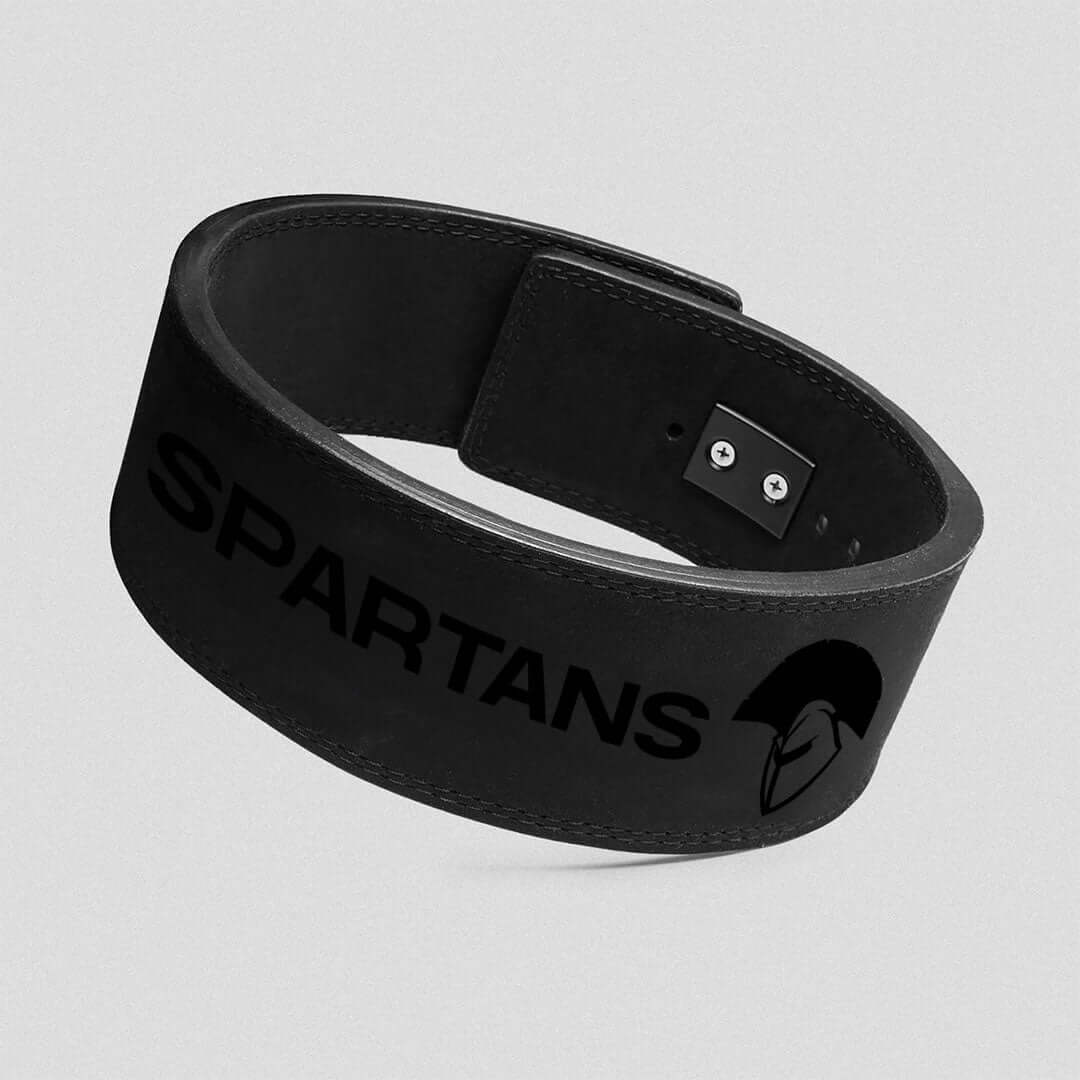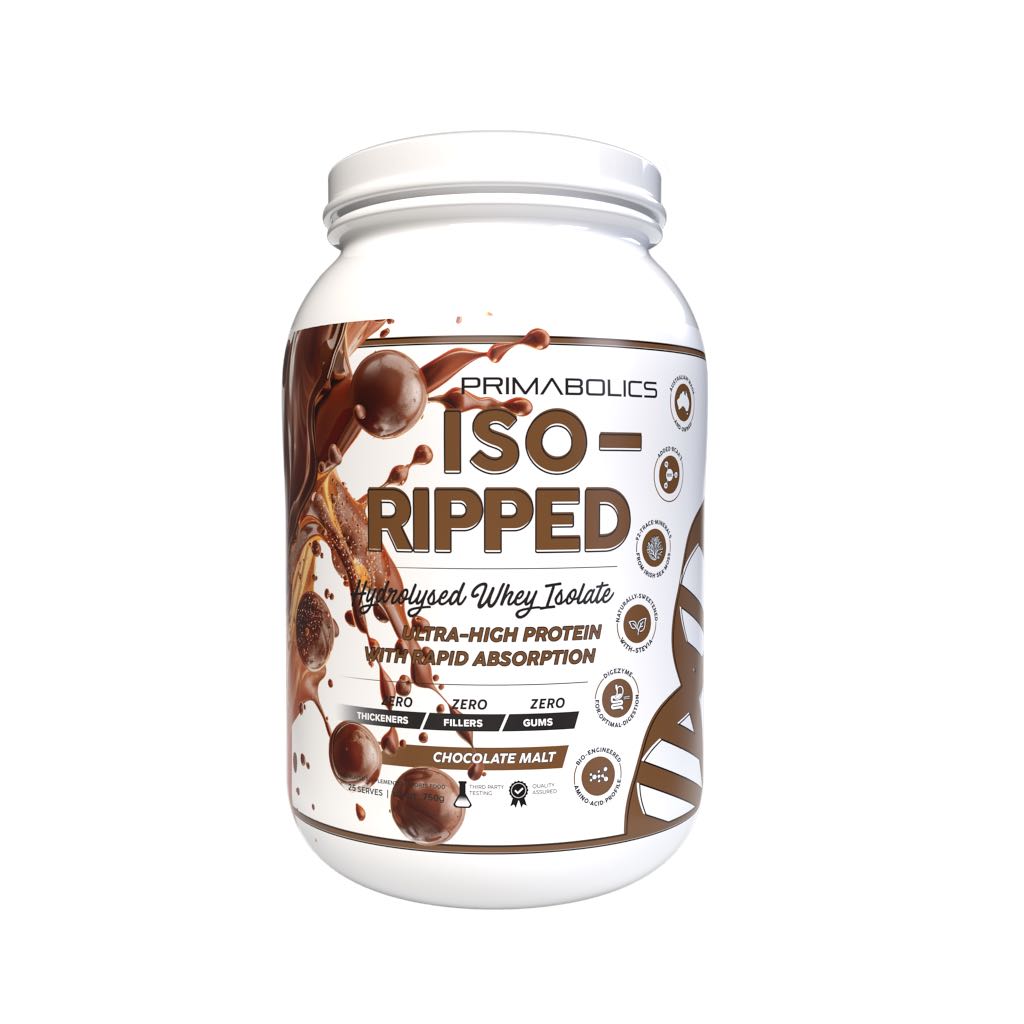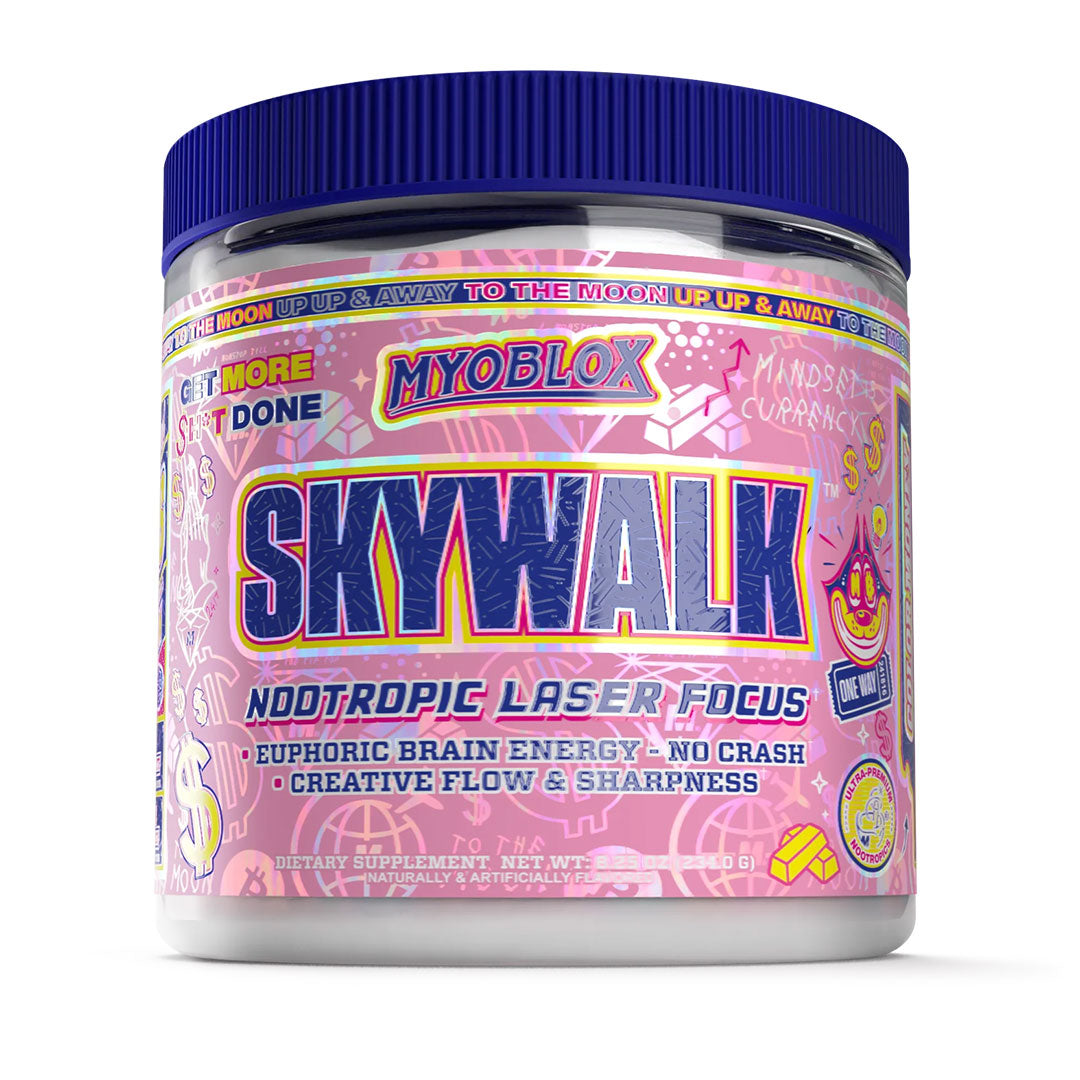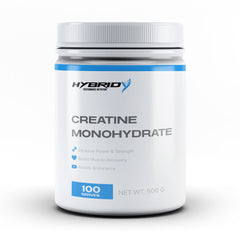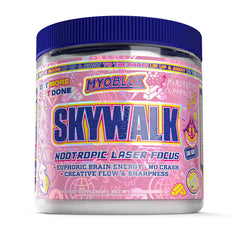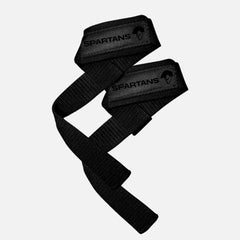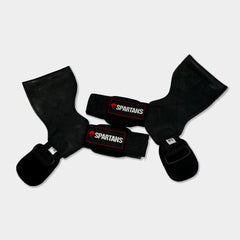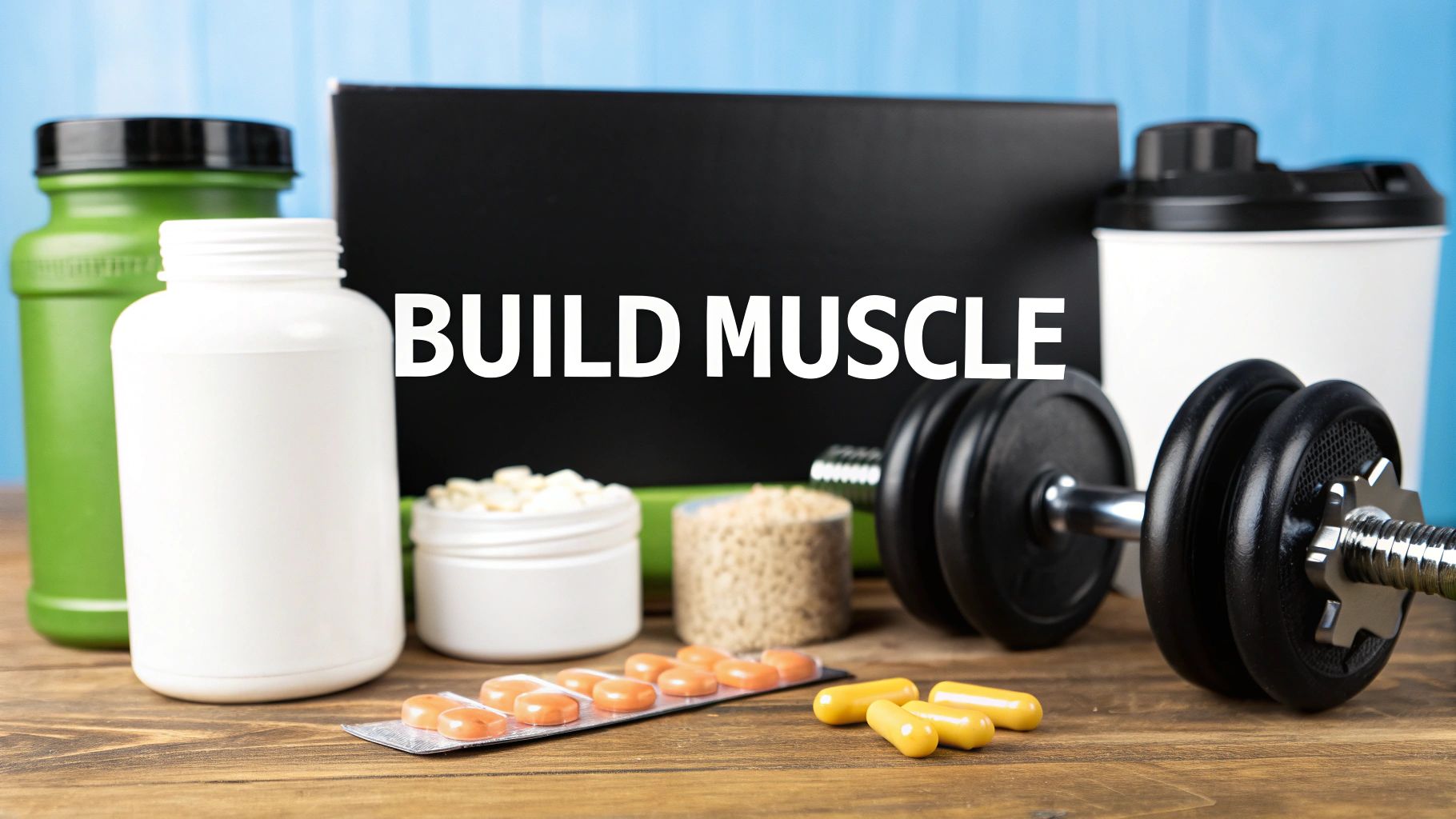When you ask what the best supplements are for building muscle, the honest answer starts with a bit of tough love. While tools like creatine monohydrate for strength, whey protein for speedy muscle repair, and beta-alanine for workout endurance are fantastic, they only work if you've already got your diet and training dialled in. Think of them as performance enhancers, not magic pills.
Build Your Foundation Before Buying Supplements
Before spending a single dollar on supplements, let's get a clear action plan for what actually makes muscle grow.
Imagine building a house. You need a solid concrete foundation (your training plan) and quality raw materials like bricks and timber (the protein and calories you eat) long before you bring in the fancy power tools (supplements).
This mindset is crucial. No supplement in the world can make up for an inconsistent training schedule or a poor diet. Supplements are designed to supplement your hard work—to give you that extra 5-10% boost—not to replace it. To get the results you're paying for, you must get the fundamentals right first.
The Non-Negotiable Pillars of Muscle Growth
Getting bigger and stronger boils down to two key actions. Nail these, and you're guaranteed to see results.
- Train Consistently with a Plan: You have to give your muscles a reason to adapt and grow. The most effective way to do this is by following a structured program built around progressive overload. This simply means you must aim to gradually lift heavier, do more reps, or increase your sets over time. Your muscles won't grow unless you consistently challenge them.
- Eat Enough Calories and Protein: Building muscle requires energy. You need to be in a slight calorie surplus (eating more calories than you burn) and provide your body with enough protein to repair and rebuild the muscle fibres you break down during training.
Actionable Tip: Aim for 1.6 to 2.2 grams of protein per kilogram of body weight each day. For an 80kg person, that means your daily target is between 128-176 grams of protein. Track your intake for a week to see where you stand.
The Booming Interest in Performance Aids
Getting your foundation sorted puts you way ahead of the game, especially in a market that's absolutely exploding.
Here in Australia and New Zealand, the dietary supplements industry was valued at a whopping USD 3.60 billion in 2024 and is expected to climb to USD 6.55 billion by 2030. This isn't surprising. More and more people, especially adults between 25 and 50, are getting serious about their health and fitness, and they're looking for an edge with protein powders, creatine, and aminos. You can dive deeper into what's driving this growth over on [Grand View Research](https://www.grandviewresearch.com/industry-analysis/australia-new- zealand-dietary-supplements-market-report).
At the end of the day, while there are some seriously effective products out there, they're only one piece of the puzzle. The best investment you can ever make is in your diet, your training consistency, and your understanding of how muscle is really built. Once you've got that locked down, you can start bringing in supplements to amplify those hard-earned results.
The Four Proven Muscle Building Supplements
Once your training and nutrition are on point, it's time to bring in the tools that can amplify your results. Instead of getting lost in a sea of confusing labels and overhyped products, we're going to focus on four supplements with rock-solid scientific backing for building muscle. These are the tried-and-true compounds that will give you the best return on your investment.
Think of it this way: your diet provides the building materials (protein and calories) and your training is the labour. Supplements are the specialised tools you bring in to make the whole process faster and more efficient.
Creatine Monohydrate: The Power Booster
If there’s one supplement that belongs in every lifter’s gym bag, it’s creatine monohydrate. It's the most researched and consistently effective sports supplement available.
How it helps you: Creatine boosts your body's supply of phosphocreatine, which acts like a rapid-recharge battery for your muscles during short, explosive movements like heavy squats or bench presses. This extra energy helps you squeeze out an extra rep or two when it counts. Those extra reps, compounded over weeks and months, lead to significant long-term gains in both strength and size.
How to use it: Take 3-5 grams of creatine monohydrate per day. Don't overthink the timing; just take it every day to keep your muscles saturated. Consistency is what matters most. Mix it into water, juice, or your protein shake.
Protein Powders: The Repair Crew
We all know protein is essential for muscle repair and growth. But hitting your daily target with whole foods alone can be challenging and expensive. Protein powders are an incredibly convenient and effective way to fill any nutritional gaps.
The popularity of protein supplements in Australia speaks for itself. The market here hit a massive USD 524 million in 2024 and is projected to almost double to USD 987.6 million by 2033. This boom is all thanks to a growing fitness culture and the demand for quality products like whey, casein, and plant-based proteins that genuinely help with muscle development.
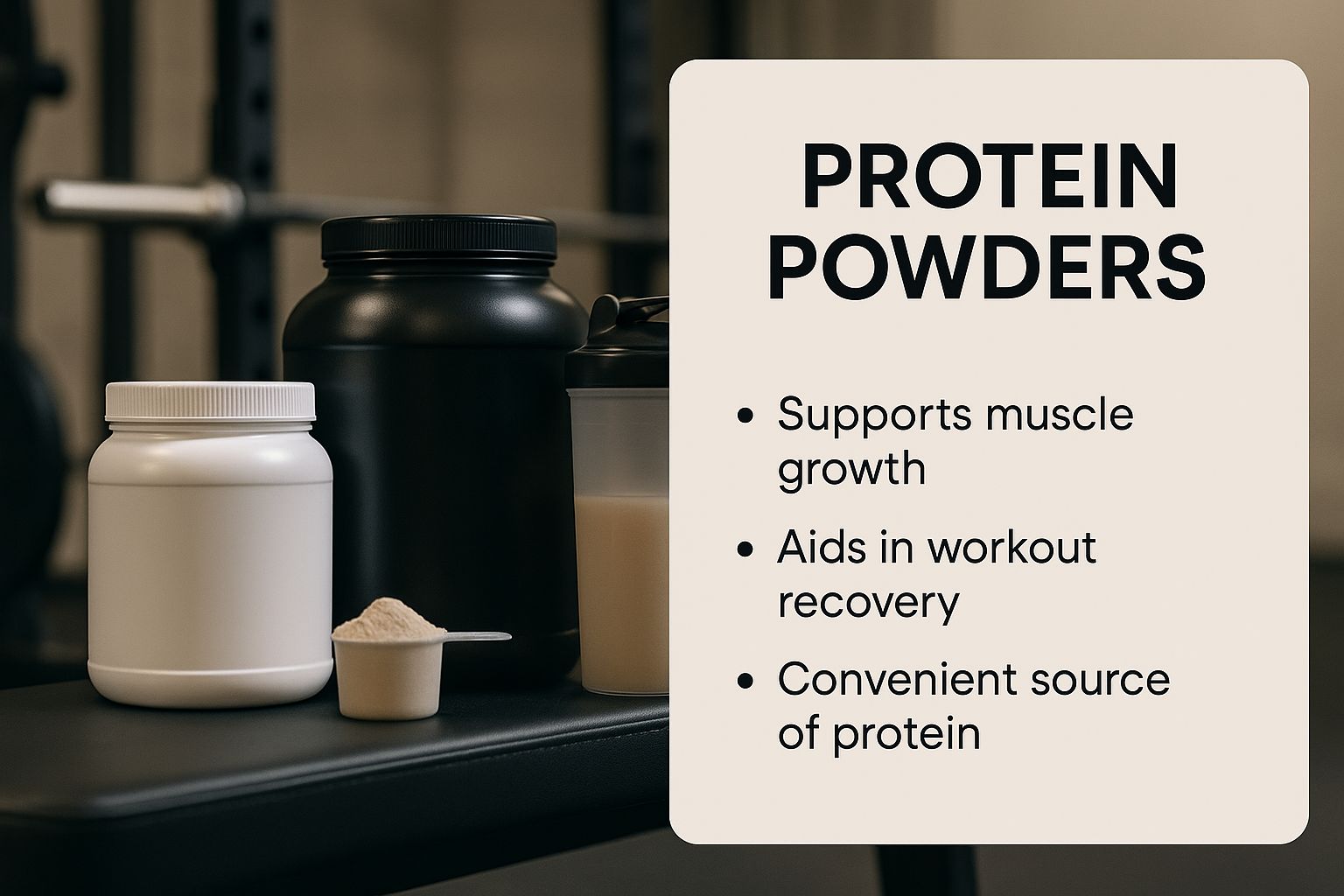
As you can see, a quality protein source is a non-negotiable cornerstone for anyone serious about building muscle.
Key Takeaway: Protein powders aren't magic, but they are a practical tool. A post-workout shake gives your body a fast, easily digestible supply of amino acids exactly when it needs them to kickstart the recovery and growth process.
Here are the main types to choose from:
- Whey Protein: The most popular choice for a reason. It’s a fast-digesting protein from milk, making it perfect for a post-workout shake to quickly deliver nutrients to your muscles.
- Casein Protein: Also from milk, but it digests slowly over several hours. This makes it a great option before bed to provide a steady supply of protein and prevent muscle breakdown while you sleep.
- Plant-Based Powders: If you're vegan or lactose intolerant, you’re covered. Modern blends of pea, rice, or soy protein offer a complete amino acid profile to support muscle growth just as effectively.
Feeling a bit lost on which tub to pick? You can check out our detailed supplement reviews for some guidance on what might be the best fit for you.
To make things easier, here's a quick cheat sheet covering the core supplements we've discussed.
A Quick Guide to the Core Four Muscle Supplements
This table breaks down the essentials for the most effective muscle-building supplements, covering what they do, how much to take, and the best time to take them.
| Supplement | Primary Function | Recommended Daily Dose | Best Time to Take |
|---|---|---|---|
| Creatine Monohydrate | Increases strength and power output | 3-5 grams | Anytime (daily consistency is key) |
| Protein Powder | Aids muscle repair and growth | 20-40 grams per serving | Post-workout or to meet daily goals |
| Beta-Alanine | Buffers muscle acid to delay fatigue | 3-6 grams | Can be split throughout the day |
| Citrulline Malate | Enhances blood flow and nutrient delivery | 6-8 grams | 30-60 minutes before training |
This table should give you a solid foundation, but let's dive into the last two supplements on our list.
Beta-Alanine: The Endurance Extender
You know that intense burning sensation in your muscles that forces you to end a set early? That's caused by acid buildup. Beta-alanine is your secret weapon against it.
How it helps you: It boosts your body’s production of carnosine, a compound that acts as a buffer against that acid. This allows you to push through the burn and grind out more reps, extending your sets and increasing your total training volume. Over time, more volume equals more muscle.
How to use it: The recommended daily dose is 3-6 grams. To minimise the harmless tingling sensation (paresthesia) some people experience, you can split the dose into smaller amounts throughout the day.
Citrulline Malate: The Nutrient Transporter
Last but not least, we have citrulline malate. This compound works by increasing nitric oxide production in your body, which relaxes your blood vessels and improves blood flow to your working muscles.
How it helps you: This enhanced blood flow acts like a nutrient highway, delivering more oxygen and essential nutrients to your muscles during your workout. It also helps clear out waste products faster. The result is better performance, a great muscle pump, and often, less muscle soreness the next day.
How to use it: For the best results, take a clinically effective dose of 6-8 grams of citrulline malate about 30-60 minutes before you train.
Supplements for Advanced Performance and Recovery
Once you have the core four supplements dialled in, you can start looking for that extra edge—something to push your performance further and help you recover faster. This next level of supplementation is about fine-tuning your efforts to get more out of every workout and shorten your recovery window.
If protein and creatine are the bricks and mortar of your muscle-building project, these advanced supplements are the high-spec power tools. They aren't the foundation, but for serious lifters, they can make a noticeable difference.
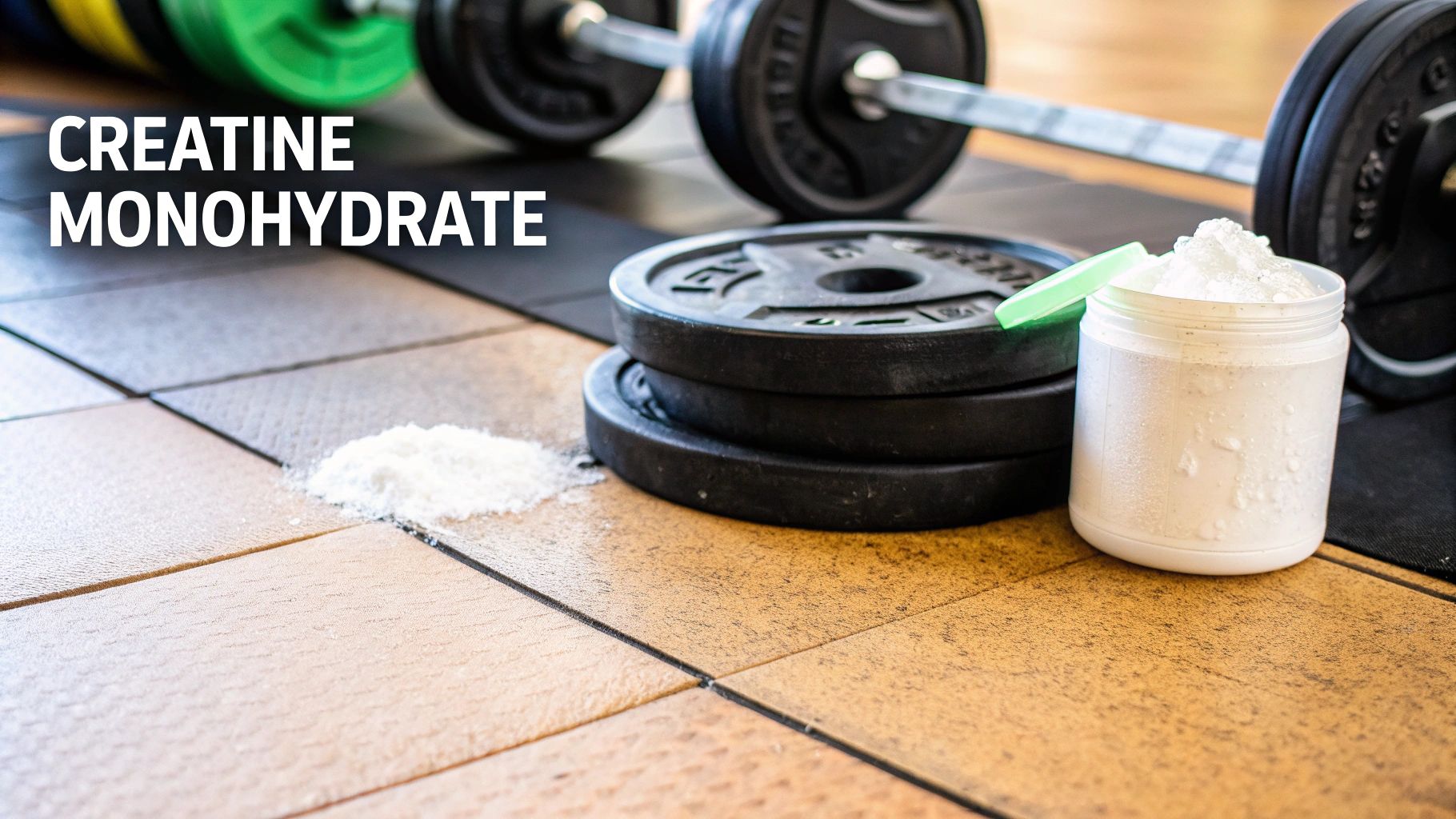
This drive for optimisation is huge across Australia, and the sports nutrition market reflects that. It’s projected to explode from USD 145.5 million in 2025 to USD 666.5 million by 2035. This growth is fuelled by Aussies who are genuinely committed to their fitness and want effective ways to support their muscle gain and recovery goals. For a deeper dive into these numbers, you can check out the analysis from Future Market Insights.
Decoding Amino Acids BCAAs vs EAAs
You’ve probably heard of amino acids, but the BCAA vs. EAA debate can be confusing. Let’s clear it up. Branched-Chain Amino Acids (BCAAs) are just three specific aminos: leucine, isoleucine, and valine. Essential Amino Acids (EAAs) include all nine aminos your body can't produce itself—which also includes the three BCAAs.
When should you use them? For most people getting enough protein from food and shakes, neither is a must-have. Your whey protein is already loaded with both. If you're a whey fan, it's worth seeing how a quality product like Max's 100% Pure Whey is formulated to cover these bases.
However, they are very useful in specific situations:
- Training Fasted: Sipping on EAAs before or during a fasted session is a great way to prevent muscle breakdown without significantly impacting your fast.
- During a Calorie Deficit: When you’re dieting, your body is more likely to break down muscle tissue for energy. EAAs provide a low-calorie way to protect your hard-earned muscle.
Actionable Tip: If you have to choose one, EAAs offer a more complete solution. Why settle for just three building blocks when you can have all nine that your body needs to trigger muscle protein synthesis?
Demystifying Pre-Workout Formulas
Pre-workout supplements are designed to give you a boost of energy, focus, and performance. The problem is that quality varies wildly. Many are just a cocktail of stimulants that leave you feeling jittery before a massive crash.
A good pre-workout is built on clinically-proven ingredients at effective doses. When scanning the label, look for these key ingredients:
- Caffeine: The king of energy and focus. A dose of 200-300 mg is the effective range for most people.
- L-Theanine: Often paired with caffeine, this amino acid smooths out the stimulant kick, providing clean, sharp focus without the anxiety or jitters.
- Citrulline Malate & Beta-Alanine: As we've covered, these are your performance drivers, boosting blood flow for pumps and helping you fight off fatigue.
Actionable Tip: Be wary of products that hide ingredient amounts behind "proprietary blends." Full transparency on the label is the first sign of a quality formula. The goal is to feel energised and focused, not wired and frantic.
How to Choose Quality Supplements in Australia
Walking into a supplement store or browsing online can be overwhelming. The Australian market is saturated with products, all making big promises. You need to know how to spot genuinely effective products from the cleverly marketed duds.
Becoming a smart supplement shopper is about learning what to look for—the key signs of quality and transparency. Mastering this skill ensures your hard-earned money is invested in products that are both safe and effective.
Read the Label Like a Pro
The supplement label is your most important tool. Forget the flashy claims on the front; flip the tub around and go straight to the ingredients panel.
Here’s what to look for:
- Clinically Effective Doses: An ingredient only works if it’s included at a dose proven to be effective. For example, a pre-workout might contain citrulline malate, but if it only has 2 grams, you won't get the performance benefits seen in studies that use 6-8 grams.
- Full Transparency: The best brands are proud of their formulas. They list every ingredient and its exact dosage, allowing you to make an informed decision based on science.
- Beware of "Proprietary Blends": This is a major red flag. A proprietary blend lists ingredients under one name, hiding the exact amount of each. It's often a way for companies to under-dose expensive ingredients and fill the formula with cheaper ones.
Look for Third-Party Testing Certifications
In Australia, the gold standard for supplement safety is third-party testing. These independent labs verify that products are free from banned substances and that the label is accurate.
Seeing a certification from a reputable body is a strong signal that the brand is committed to quality and honesty. It provides peace of mind, especially if you're a competitive athlete.
Look for these logos on the packaging:
- HASTA (Human and Supplement Testing Australia): Australia's leading independent sports drug testing lab. A HASTA certification means every batch has been screened for over 200 substances banned by the World Anti-Doping Agency (WADA).
- Informed-Sport: A global quality assurance program. The Informed-Sport logo means a product has been rigorously tested for a wide range of prohibited substances, minimising risk for athletes.
Choosing certified products means you're getting a pure, safe, and accurately labelled supplement. When considering a cornerstone supplement like creatine, you can find out more by reading our guide on what creatine is and if you should use it. Investing in a certified product is always the smarter choice.
Building Your Personalised Supplement Plan
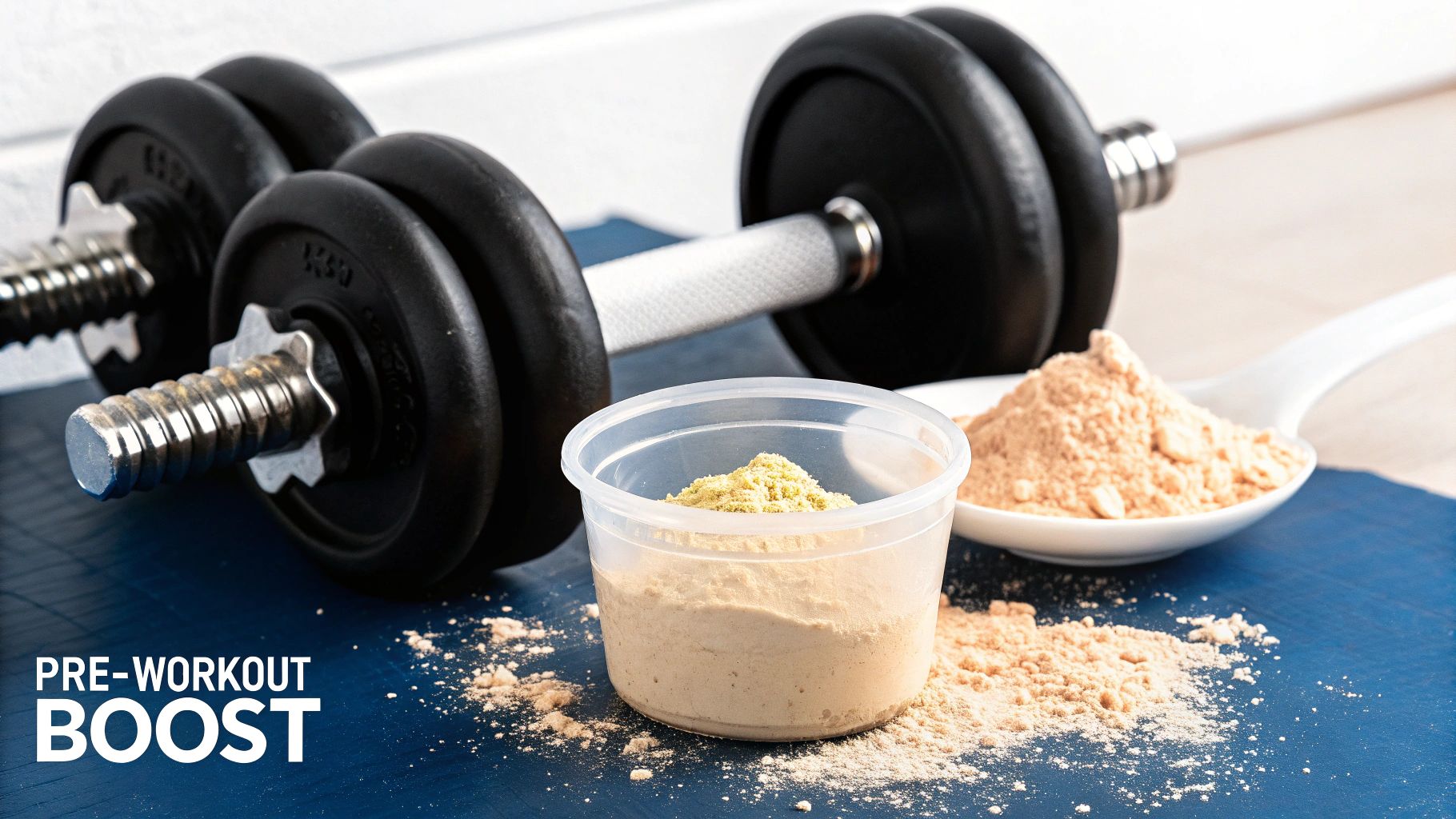
Taking every popular supplement you see online is a fast way to waste money. The smart approach is to build a plan tailored to you—your training experience, specific goals, and budget. This ensures you only invest in what will actually move the needle.
The key is to start with the essentials and earn your way to more advanced supplements. This prevents you from getting overwhelmed and ensures your money is spent on what gives you the biggest return.
And if you want to track what's working, objective data is crucial. Using a tool like a body composition ultrasound for accurate muscle assessment can show you in black and white whether the changes you're making are paying off.
Stacks For Every Experience Level
Let's break down what a practical supplement stack looks like at different stages.
-
The Beginner Stack (0-1 Year of Consistent Training): Forget the complex stuff. Your goal is to master the fundamentals. Nail your gym consistency and hit your daily protein targets.
- Core: Whey or a plant-based protein powder and creatine monohydrate. That’s it.
- Focus: These two cover the absolute essentials for muscle repair and strength gains. They build the foundation for everything to come.
-
The Intermediate Stack (1-3 Years of Consistent Training): You've built a solid base and are now pushing for better performance. It's time to add tools to help you train harder and longer.
- Core: Protein powder and creatine.
- Additions: Beta-alanine to help buffer muscle burn during intense sets and citrulline malate for better pumps and nutrient delivery.
Actionable Tip: At this stage, the goal isn’t to add more for the sake of it, but to strategically include supplements that directly support higher training intensity and volume.
-
The Advanced Stack (3+ Years of Serious Training): Your nutrition and training are dialled in. Now you're looking for every possible edge, and recovery is as important as your work in the gym.
- Core: Protein, creatine, beta-alanine, and citrulline.
- Additions: A well-formulated pre-workout for peak performance and Essential Amino Acids (EAAs) to support recovery, especially during a tough dieting phase.
This progressive approach ensures you’re always using the best supplements for your current needs, not just chasing trends.
To make this even clearer, here's how these stacks look side-by-side.
Sample Supplement Stacks by Experience Level
| Experience Level | Core Supplements | Optional Additions | Primary Goal |
|---|---|---|---|
| Beginner (0-1 Year) | Protein Powder, Creatine Monohydrate | None - focus on the basics! | Build a solid foundation of muscle and strength. |
| Intermediate (1-3 Years) | Protein Powder, Creatine | Beta-Alanine, Citrulline Malate | Increase training intensity and workout volume. |
| Advanced (3+ Years) | Protein, Creatine, Beta-Alanine, Citrulline | Pre-Workout, Essential Amino Acids (EAAs) | Maximise performance, recovery, and find every edge. |
As you can see, the foundation always stays the same. You just strategically add new tools as your ability to push your body to new limits increases. It’s all about earning your complexity.
Common Questions About Muscle Building Supplements
Diving into the world of fitness supplements can feel overwhelming with all the conflicting advice and myths out there.
This final section tackles the most common questions we get asked. We're here to give you clear, straightforward answers so you can make choices with confidence.
Do I Need to Cycle Supplements Like Creatine?
No, you don't. The idea of "cycling" creatine—taking it for a while and then stopping—is an outdated gym myth. For most healthy people, it's completely unnecessary.
Study after study has shown that continuous daily use of creatine monohydrate at a maintenance dose of 3-5 grams is both safe and effective for long-term use. The initial "loading phase" you might have heard about is also optional; it just helps saturate your muscles with creatine a bit faster.
Actionable Tip: Consistency is key. Just take your 3-5 gram dose daily to keep your muscles topped up and ready to perform.
Can I Build Muscle Without Any Supplements?
Absolutely. It's crucial to remember that supplements are just that—they supplement your efforts. They are not a replacement for the hard work that actually builds muscle.
The real drivers of muscle growth are:
- A consistent and challenging resistance training program.
- Eating enough calories to fuel that growth.
- Hitting your daily protein targets, ideally through whole foods first.
Supplements can make it easier to hit your targets and give you an edge in the gym, but they are not essential for building an impressive physique.
Are Muscle Building Supplements Safe For Women?
Yes, one hundred percent. The most proven muscle-building supplements are just as safe and effective for women as they are for men.
Core supplements like creatine, protein powder, and beta-alanine work on the same physiological pathways regardless of gender. They help with energy production and muscle repair, which are universal processes.
These supplements have zero hormonal effects and will not make women "bulky" unless that is the specific goal being pursued with a highly specialised training and nutrition plan. Dosage guidelines are almost always based on body weight, not gender.
At Spartan Suppz, we're all about providing you with the highest quality, scientifically-backed supplements to support you on your fitness journey. Explore our full range of products and find the right tools to help you smash your muscle-building goals. Find out more at https://www.spartansuppz.com.
Article created using Outrank
